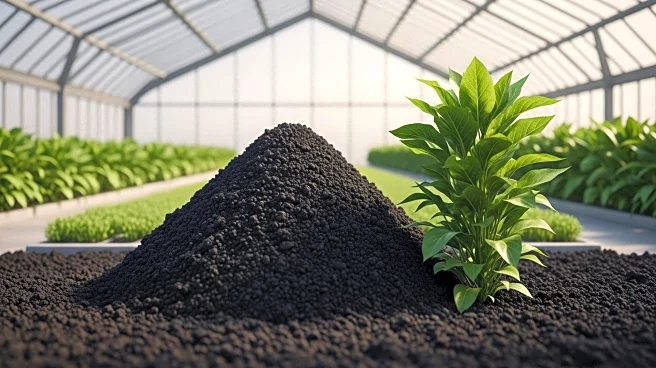What is the story about?
What's Happening?
Researchers have identified biochar as a promising solution to enhance soil quality and reduce carbon emissions. Biochar, produced by heating agricultural waste in low-oxygen conditions, can increase crop yields and sequester carbon in the soil. A study by the Chinese Academy of Sciences found that biochar application improved crop yields by 11% and reduced methane and nitrous oxide emissions by 14% and 21%, respectively. The researchers estimate that converting 70% of crop straw into biochar could significantly increase global grain harvests and offset 5% of global carbon emissions.
Why It's Important?
Biochar offers a dual benefit of improving agricultural productivity while mitigating climate change. By enhancing soil carbon storage and reducing greenhouse gas emissions, biochar can play a crucial role in sustainable agriculture and environmental conservation. The potential to increase food security and reduce pollution makes biochar an attractive option for policymakers and farmers. However, challenges such as the need for repeated applications and initial costs must be addressed to realize its full potential.
What's Next?
Further research is needed to optimize biochar application across different soils and climates. Government support and subsidies could encourage wider adoption, helping farmers overcome initial costs and realize long-term benefits. As biochar gains traction, it could become a key component of global strategies to combat climate change and enhance food security.
















